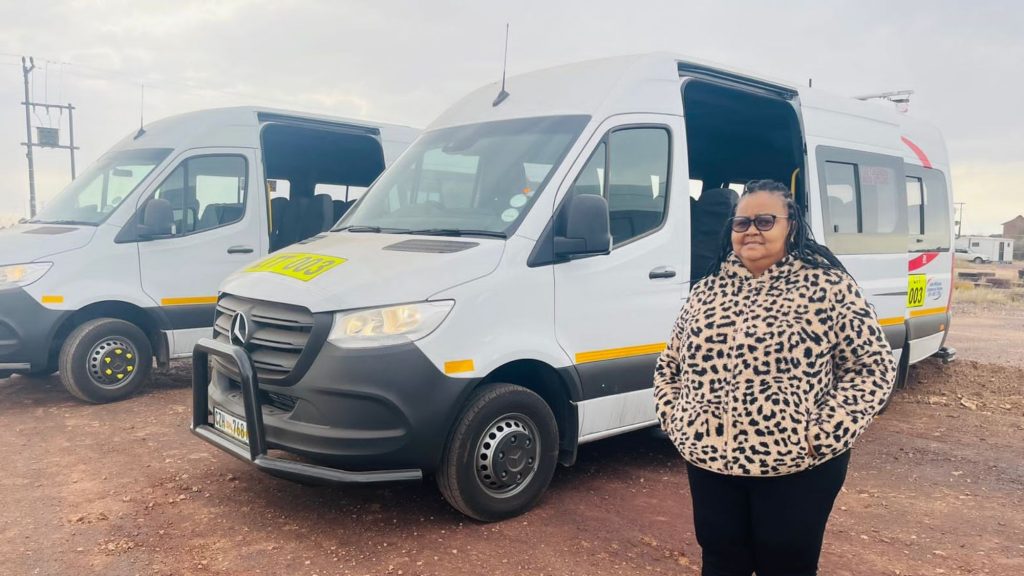We all have them. Those apps we open without thinking. Not because we need anything in particular, but because they feel… safe, in some…
Zimele start-ups clinch big contract to transport mining staff

Three start-ups participating in mining giant Anglo American’s Zimele enterprise development programme received 19 vehicles to deliver on a multi-million Rand staff transportation contract at the Kolomela operations.
The five-year contract supports Kumba Iron Ore’s strategy to increase the participation of host community suppliers in the provision of services to the mine. The start-ups contracted are Sizanani Holdings, Immanuel Transport and Loading Techniques.
Vusi Maseko, head of supply chain at Kumba Iron Ore, said: “This is yet one of those transactions that attest to Kumba Iron Ore’s commitment to building an inclusive supply chain, through development, incubation and mentoring of our host community enterprises and suppliers.”
“Not only do we collaborate internally with our Zimele programme to identify entrepreneurs and afford them the skills to take on and deliver on large scale projects, but we also work closely with local business forums in the host communities to support and facilitate access to markets for these small businesses.”
The fleet on order comprises 19 vehicles – 11 mini-buses and 14 buses which are to be used for transporting staff both inside and outside the mining operations.
The beneficiaries formed part of Zimele’s supplier development programme at the Kolomela hub where they went through a rigorous training as well as mentorship and coaching programme that would enable them to access markets and procurement opportunities both inside and outside of Anglo American.
In addition, they were also selected to participate in the Zimele Financial Excellence programme, which is implemented in partnership with the SA Institute of Chartered Accountants Enterprise Development (SAICA-ED).
The programme is aimed at empowering SMMEs within the mining sector to improve their financial management systems, run effective business operations and grow holistically to become economically sustainable.
Through its loan funding programme, Zimele has granted about R15 million to be used for purchasing of these vehicles. An additional R14.4 million was approved by Absa through their enterprise and supplier development programme to bring the total funding to R29.4 million. The loans were processed and approved through Absa, bringing the total loan funding amount granted through Zimele for Kumba Iron Ore suppliers to R22.7 million in 2022.
The three start-ups will join Benleg Technical Services, the 100% black-owned host community company that has been a supplier of transportation services at the mine. With the additional services by the three beneficiaries, the mine is supporting more local businesses through their localised procurement programme.
Larisha Naidoo, head of Anglo American Zimele, said: “This deal demonstrates collaborative efforts with Kumba Iron Ore Supply Chain, Kolomela mine, and banking partners to develop local suppliers to create sustainable livelihoods in these host communities. This is one of several ways in which Zimele assist Anglo American business units to achieve their sustainability goals.”
Leslie Rans, owner of Immanuel Transport, said he was sincerely grateful for “for the privilege and honour of being awarded the contract from Kolomela mine and the subsequent financial support to acquire the busses.”
“I feel blessed because you blessed me to be a blessing to others,” he said, in emphasis to the significance of the contract in the creation and sustenance of employment in the host communities around the Kolomela mine.
Kolomela mine general manager Masala Mutangwa said, “The awarding of the contract, demonstrates our commitment and the trust we have in our local suppliers. We as a business are willing to go the extra mile to support our local suppliers to get the necessary funding needed to enable them in setting up their businesses.”
ALSO READ: ‘Traditional banks don’t grasp economic importance of SMEs’

